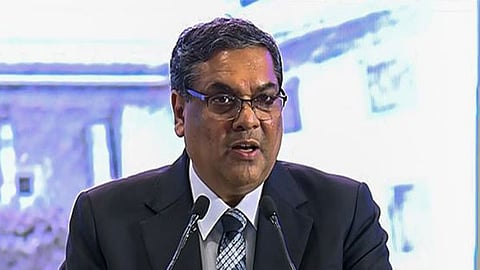No oral submissions for urgent case hearings, says CJI Khanna
NEW DELHI: Chief Justice of India Sanjiv Khanna on Tuesday announced that no oral submissions for the urgent listing and hearing of cases will be allowed. Lawyers are now required to submit requests via email or written letters for such cases.
Traditionally, lawyers would mention their cases before the CJI-led bench at the start of daily proceedings to seek out-of-turn listings and hearings on grounds of urgency.
"No written or oral mentionings anymore. Only emails or written slips/letters will be accepted. Just state the reasons for urgency," the CJI said.
Justice Khanna, who was sworn in as the 51st CJI by President Droupadi Murmu at Rashtrapati Bhavan on Monday, reiterated the importance of a citizen-centric agenda for judicial reforms. He stressed that ensuring easy access to justice and equal treatment for citizens, irrespective of their status, is a constitutional duty of the judiciary.
"The judiciary is an integral, yet distinct, and independent part of the governance system. The Constitution entrusts us with the role of guardian of the Constitution, protector of fundamental rights, and the responsibility of delivering justice," the CJI stated in his first address as Chief Justice.
Justice Khanna outlined a vision for reducing case backlogs, making litigation more affordable, and simplifying complex legal processes. He emphasized that the justice system must cater to all citizens and proposed making courts more accessible and user-friendly.
He also stressed the importance of promoting mediation and ensuring that judgments are clear and understandable to the public. Criminal case management, reducing trial durations, and minimizing burdensome legal procedures were also highlighted as key priorities.
"The responsibility entrusted to us affirms our commitment as protectors of citizens' rights and as dispute resolvers. We must ensure equal treatment and fair opportunities for all," Justice Khanna concluded.

